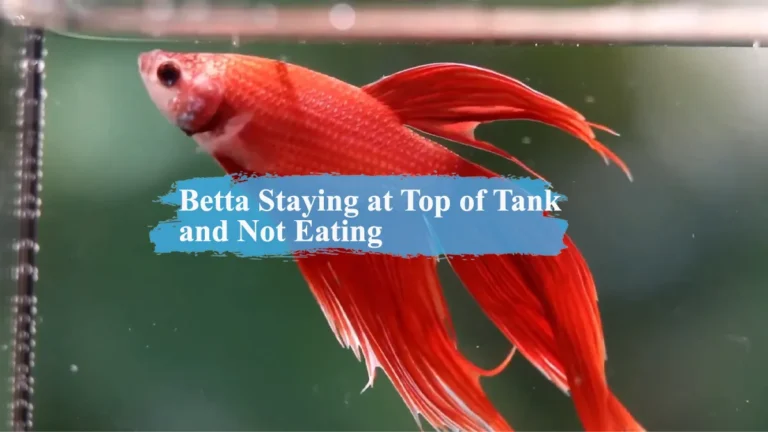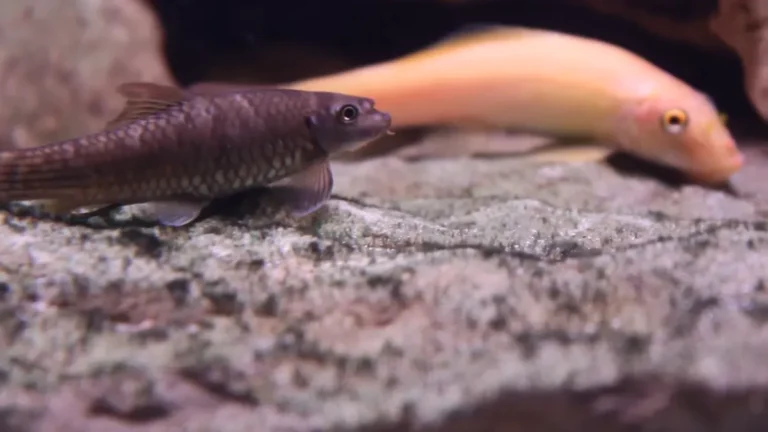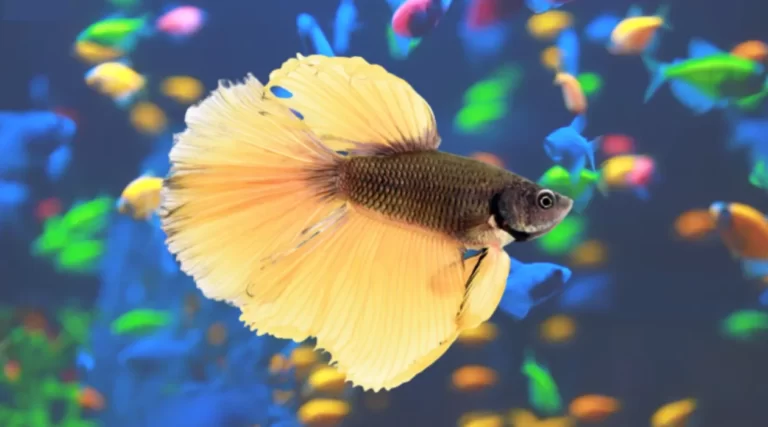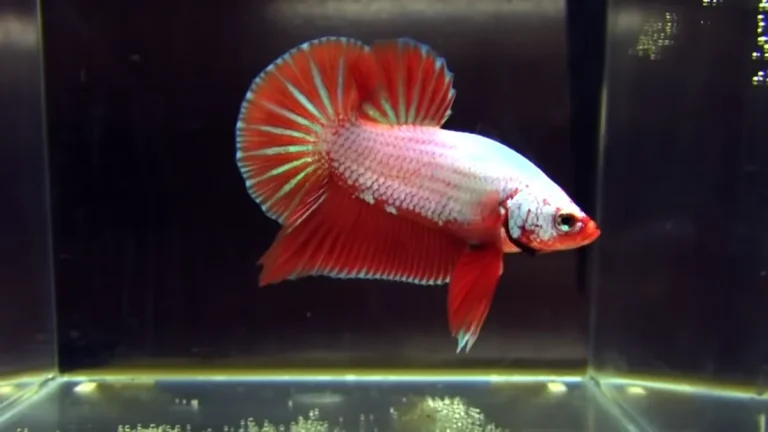Betta Fish Injured: Causes and Treatment
Betta fish are known for their vibrant colors and elegant fins. They are a popular choice for aquarium enthusiasts. However, despite their beauty, these fish are not immune to injuries. Betta fish can get injured due to various reasons, such as fights with other fish, poor water quality, or rough handling during transportation. Injuries can be distressing for both the fish and the owner. Therefore, it is essential to know how to identify, treat and prevent injuries in betta fish.
Key Takeaways
- Betta fish can get injured due to fights with other fish, poor water quality, or rough handling during transportation.
- Symptoms of injury can range from torn fins to open wounds, and it is crucial to identify them early on and take prompt action.
- First aid measures include isolating the injured fish, cleaning the wound, and providing a stress-free environment. Treatment options may vary depending on the severity of the injury, and prevention measures include maintaining a clean and healthy environment, avoiding overcrowding, handling the fish with care, and providing proper nutrition.
In this article, we will explore the various reasons why betta fish can sustain injuries and provide valuable insights into their treatment. Whether you’re a seasoned betta fish keeper or a newcomer to the world of aquariums, this information will empower you to provide the best care for your injured betta and promote a happy and healthy life for your aquatic friend.
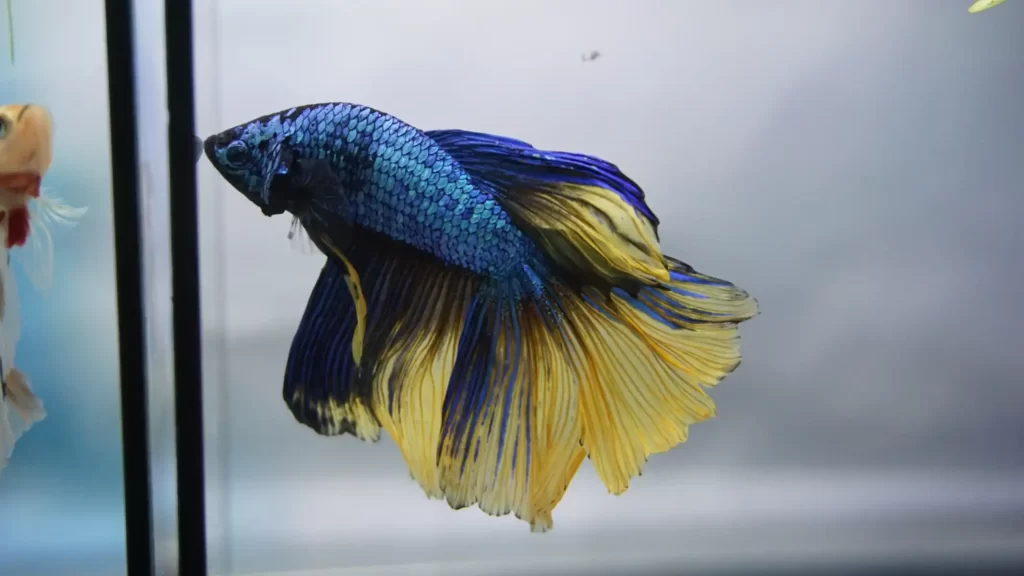
Betta Fish Injured What to do
Betta fish are known for their beauty and vibrant colors, but they can also be prone to injuries. There are a variety of reasons why a Betta fish may become injured, including physical interaction with sharp objects, aggressive tank mates, jumping out of the tank, or getting caught in the filter intake. When a Betta fish becomes injured, it is important to act quickly to prevent infection and promote healing.
The first step in treating an injured Betta fish is to isolate it in a clean tank with fresh, treated water. This will help prevent further injury and reduce the risk of infection. BettaFix and MelaFix are two medications that can be added to the water to promote healing and prevent infection. However, it is important to note that strong medications can stress the fish and should be used with caution.
How to Fix:
In addition to medication, there are other steps that can be taken to help promote healing in an injured Betta fish. These include:
- Keeping the water clean and well-maintained
- Adding aquarium salt to the water to promote healing
- Feeding the fish a healthy, balanced diet to support its immune system
- Providing a comfortable, stress-free environment for the fish to heal in
It is important to monitor the injured Betta fish closely and watch for signs of infection or further injury. If the fish does not show signs of improvement within a few days, it may be necessary to seek the advice of a veterinarian or experienced fish keeper.
Causes of Betta Fish Injured
Betta fish are known for their beauty and vibrant colors. However, they are also prone to injuries, which can lead to serious health issues if not addressed promptly. Understanding the causes of injury is crucial to prevent them from happening in the first place.
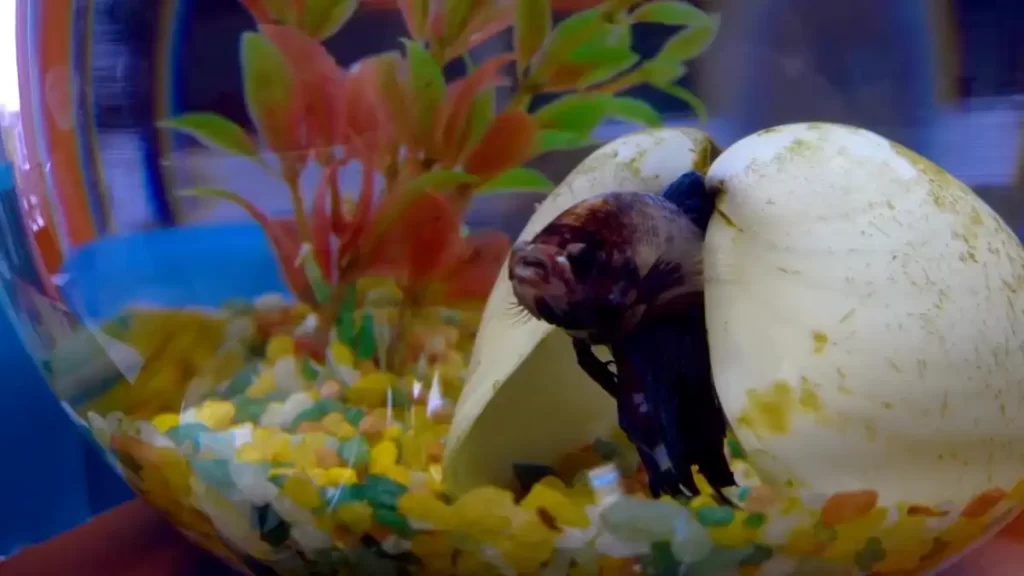
Sharp Objects
Sharp objects such as rocks, decorations, or even the edges of the tank can cause injuries to betta fish. These injuries can range from minor cuts to severe wounds that can become infected. It is important to inspect the tank regularly for any sharp objects that could harm the fish.
Aggressive Fish
Betta fish are known for their territorial behavior, and they can become aggressive towards other fish in the tank. This can result in injuries, especially if the other fish are larger and stronger. It is important to ensure that the tank mates are compatible with the betta fish and that there is enough space for everyone.
Filter Intake
Filter intakes can also cause injuries to betta fish. If the intake is too strong, it can suck the fish towards it, causing damage to their fins or even trapping them inside. It is important to use a filter with an adjustable intake or a pre-filter sponge to prevent injuries.
Jumping the Tank
Betta fish are known to be jumpers, and they can easily jump out of the tank if the lid is not secure. Injuries from jumping out of the tank can range from minor cuts to serious injuries that can be fatal. It is important to ensure that the tank has a secure lid to prevent the fish from jumping out.
Poor Water Quality
Poor water quality can also lead to injuries in betta fish. Ammonia and nitrite build-up can cause burns and damage to the fish’s fins and gills. It is important to maintain good water quality by performing regular water changes and using a good quality water conditioner.
Betta Fish Injured Symptoms
Betta fish are prone to injuries, and it’s important to recognize the signs of injury to provide prompt care. Here are some common symptoms of injury in betta fish:
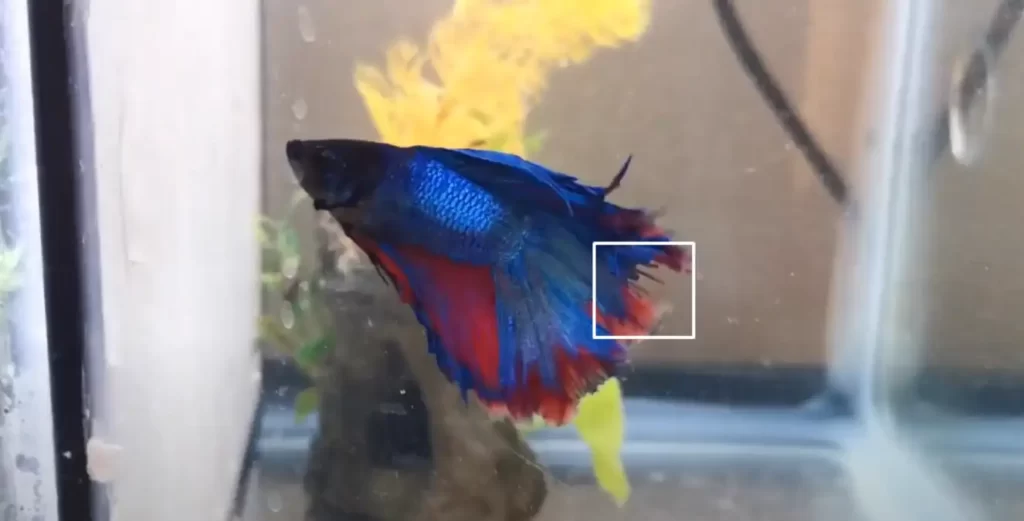
- Frayed or Torn Fins: Betta fish have delicate fins that can easily get injured. If you notice that your betta’s fins are frayed or torn, it could be a sign of injury. In some cases, the fins may be completely shredded.
- Red Streaks or Spots: If you notice red streaks or spots on your betta’s body, it could be a sign of injury. These red marks may be caused by physical trauma or bacterial infections.
- Lethargy: Injured betta fish may become lethargic and spend more time resting at the bottom of the tank. They may also lose their appetite and stop eating.
- Clamped Fins: Betta fish may clamp their fins close to their body when they are injured or stressed. This is a protective mechanism that helps them conserve energy and reduce their risk of further injury.
- Discoloration: Injured betta fish may experience changes in color. They may become pale or develop dark spots or patches on their body.
If you notice any of these symptoms in your betta fish, it’s important to take immediate action to provide care and treatment. By addressing the injury promptly, you can help your betta fish recover and return to their lively selves.
First Aid Measures
When a betta fish is injured, it is important to take immediate action to prevent further harm and promote healing. Here are some first aid measures that can be taken:
Isolate the Injured Betta Fish
The first step in caring for an injured betta fish is to isolate it from other fish in the tank. This can be done by using a small, clean container that is free from sharp edges and has enough water to cover the fish. This will help prevent the injured fish from being further stressed or injured by other fish in the tank.
Assess the Severity of the Injury
It is important to assess the severity of the injury before taking any further action. Minor injuries such as torn fins can be treated with simple first aid measures, while more serious injuries such as deep wounds may require more advanced care or veterinary attention.
Clean the Wound
If the injury is minor, the wound can be cleaned with a mild antiseptic solution such as Betadine or hydrogen peroxide. Be sure to dilute the solution with water before applying it to the wound. Gently dab the wound with a clean cotton swab or gauze to remove any debris or bacteria.
Monitor the Betta Fish
After cleaning the wound, it is important to monitor the betta fish for any signs of infection or further injury. Keep the water in the container clean and well-aerated, and ensure that the water temperature is appropriate for the species.
Provide Proper Nutrition
Proper nutrition is essential for the healing process. Offer the injured betta fish a variety of high-quality foods such as frozen or live brine shrimp, bloodworms, or daphnia. These foods are high in protein and will help promote healing.
Administer Medication
If the injury is more serious, medication may be necessary to prevent infection or promote healing. Consult with a veterinarian or experienced fish keeper for guidance on the appropriate medication and dosage.
By taking these first aid measures, betta fish owners can help promote healing and ensure the well-being of their injured fish.
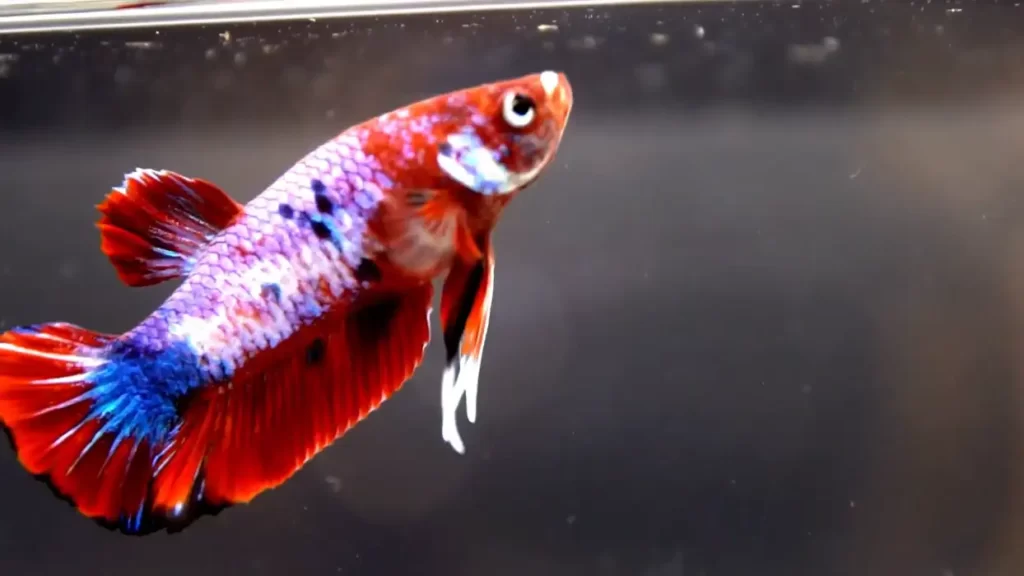
Treatment Options
When a Betta fish is injured, prompt treatment is essential to ensure their well-being and recovery. Here are some treatment options that can help:
Clean Water
Clean water is crucial for the healing process. It helps prevent infections and promotes faster recovery. You can change the water frequently, at least 25% of the tank volume every other day. Use a water conditioner to remove chlorine and other harmful chemicals from the tap water.
Medications
Several medications can help treat Betta fish injuries. BettaFix and MelaFix are two common medications that can help treat open wounds and prevent secondary infections. They contain Melaleuca or Tea Tree Oil, which is known for its antibacterial properties.
Salt Bath
A salt bath can help Betta fish recover from injuries and infections. Dissolve one teaspoon of aquarium salt per gallon of water in a separate container. Place the Betta fish in the container for about 15 minutes. Repeat this process every other day for up to a week.
Isolation
If the injured Betta fish is in a community tank, it’s best to isolate them to prevent further injuries from other fish. Place the Betta fish in a separate tank with clean water and a heater to maintain a temperature of 78-80°F.
Proper Nutrition
A proper diet is essential for the healing process. Feed the Betta fish high-quality food that is rich in protein and vitamins. Avoid overfeeding, as uneaten food can pollute the water and lead to further health problems.
Prevention Measures
Preventing Betta fish injuries is the best way to keep them healthy and happy. Here are some prevention measures that can help you keep your Betta fish safe:
1. Clean Tank
Keeping the tank clean is one of the most important prevention measures. A dirty tank can cause various diseases and injuries to Betta fish. It is recommended to clean the tank at least once a week. You should also change the water regularly to keep the water quality high.
2. Proper Tank Size
Betta fish need enough space to swim and explore. A small tank can cause stress and injuries to Betta fish. It is recommended to keep Betta fish in a tank that is at least 5 gallons. This will provide enough space for Betta fish to swim and live comfortably.
3. Smooth Tank Decorations
Sharp or rough tank decorations can cause injuries to Betta fish. It is recommended to use smooth decorations that do not have any sharp edges. You should also avoid using plastic plants as they can tear the fins of Betta fish.
4. Proper Diet
A healthy diet is important for Betta fish. Overfeeding or feeding the wrong food can cause various health issues and injuries. It is recommended to feed Betta fish a high-quality diet that is specifically designed for them. You should also avoid overfeeding and feeding too many live foods.
5. Avoid Overcrowding
Overcrowding can cause stress and injuries to Betta fish. It is recommended to keep only one Betta fish in a tank. You should also avoid keeping other aggressive fish with Betta fish as they can fight and injure each other.
By following these prevention measures, you can keep your Betta fish healthy and happy. Remember to always keep an eye on your Betta fish and take immediate action if you notice any signs of injury or illness.
Feeding and Nutrition
Proper feeding and nutrition are essential for the health and well-being of your Betta fish, especially if they have an injured ventral pelvic fin. Here are some tips to ensure that your Betta fish is getting the right nutrients it needs to recover and stay healthy.
Feeding Schedule
It’s important to establish a feeding schedule for your Betta fish. Overfeeding can lead to health problems, so it’s best to feed them small amounts twice a day. A one-day fast once a week will also give their digestive tract a break to process food fully and minimize the effects of overfeeding.
Types of Food
Betta fish are carnivorous and require a diet that is high in protein. Pellets specifically designed for Betta fish are a great source of nutrition. However, if your Betta fish is having trouble eating pellets due to an injured ventral pelvic fin, you can use tweezers to feed them the food one by one. Brine shrimps or anything like that can also be used for now.
Water Quality
Water quality is key to maintaining the health of your Betta fish. Poor water quality can lead to illness and disease. Even in tanks with a filter, it is important to regularly perform water changes to remove pollutants and introduce clean water into the aquatic environment.
Supplements
Supplements can also be added to your Betta fish’s diet to ensure that they are getting all the necessary nutrients. Betta fish can benefit from supplements such as vitamins and minerals. However, it’s important not to over-supplement as this can lead to health problems.
By following these tips, you can ensure that your Betta fish is getting the proper nutrition it needs to recover from an injured ventral pelvic fin and maintain good health overall.
Related Post: Unveiling the World of Red Devil Betta: Care, Behavior, and More
FAQ (Frequently Asked Questions)
we address some common questions related to betta fish injuries. From healing timelines to dietary considerations, we provide answers to ensure your injured betta fish receives the best possible care. Let’s dive in and find the information you need to help your betta fish on its road to recovery.
How long does it take for betta fish injuries to heal?
The healing time can vary depending on the severity of the injury. Minor injuries may heal within a week or two, while more severe injuries may require several weeks or even months to fully recover.
Can I use human first aid products on my betta fish?
It’s best to avoid using human first aid products on betta fish. Their physiology and sensitivity to certain substances differ from ours. Stick to aquarium-specific treatments and medications recommended for betta fish.
Should I quarantine my injured betta fish?
Yes, quarantining the injured betta fish is highly recommended. It helps prevent further injury from tank mates and allows you to closely monitor its progress.
How can I prevent future injuries to my betta fish?
Provide sufficient space, minimize aggression by separating aggressive bettas, avoid sharp tank decorations, and maintain excellent water quality and cleanliness in the tank.
Related Posts:

